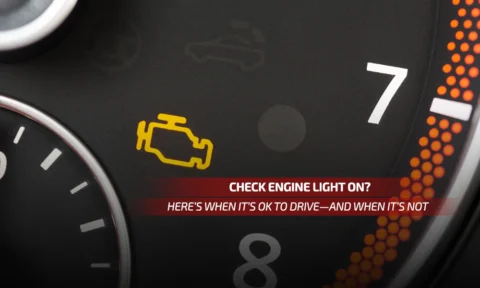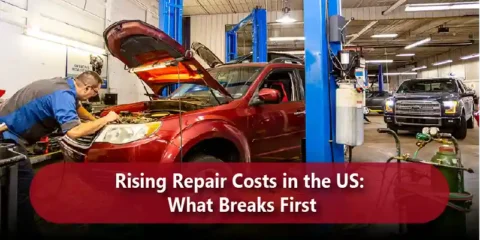Your car is one of your most valuable possessions, and when it needs repairs, finding the right shop is crucial. With so many options out there, how can you be sure you’re selecting a reliable repair shop that offers quality service at a fair price? Whether you’re dealing with a minor issue or a major mechanical problem, choosing the best car repair shop can save you time, money, and a lot of stress. In this guide, we’ll explore practical tips to help you make the right decision and ensure your car is in good hands.
How to Spot the Best Car Repair Shop for Professional Service..
Finding the best car repair shop requires looking for key qualities like certified technicians, transparent pricing, and positive customer reviews. Choose a shop that specializes in your car brand, offers modern diagnostic tools, and provides warranties for their services. Prioritize professional service, prompt repairs, and clear communication to ensure your vehicle receives top-notch care. Here as describes as follows:-
Look for Certifications and Experience
When choosing a car repair shop, the first thing to check is whether the shop is certified and experienced. Certifications from industry organizations like the National Institute for Automotive Service Excellence (ASE) or similar local entities ensure that mechanics have the knowledge and expertise to perform repairs properly. In addition to certifications, a shop’s experience matters. The more years a shop has been in business, the more likely it is that they’ve built a reputation for quality service.
Key Tip: Look for shops that specialize in your car’s make and model. Specialized shops tend to have more experience with specific brands, which can lead to faster and more accurate repairs.
Check Reviews and Recommendations
In today’s digital age, customer reviews are one of the best ways to gauge a car repair shop’s reputation. Check online platforms such as Google Reviews, or automotive forums for honest feedback from other customers. Pay attention to the overall rating and read through recent reviews to see how the shop handles repairs, customer service, and any potential issues.
You can also ask friends, family, or colleagues for recommendations. Word of mouth is a powerful tool, especially if someone you trust has had a positive experience with a local repair shop.
Key Tip: Don’t rely solely on the overall star rating. Dig deeper into the comments to identify patterns of good or bad service.
Get Estimates in Writing
A reliable car repair shop will provide a written estimate before starting any work. This estimate should break down the cost of parts, labor, and any additional fees. Getting a detailed, itemized quote not only helps you understand what you’re paying for but also makes it easier to compare prices with other shops.
Key Tip: Be cautious of shops that offer vague estimates or try to charge significantly lower than the average cost. While saving money is important, suspiciously low prices can sometimes indicate low-quality parts or inexperienced technicians.
Ask About Warranties
A trustworthy repair shop will stand by its work by offering warranties on both parts and labor. Warranties provide peace of mind that if something goes wrong after the repair, you’re covered. Ask the shop about their warranty policies before committing to any repairs.
Key Tip: The length and type of warranty can vary, so ask for specifics. A good warranty period is generally between 12 months to 24 months, covering both parts and labor.
Evaluate Customer Service
How a shop treats its customers is a clear indication of the service you can expect. When you first contact the repair shop, whether by phone or in person, pay attention to how they communicate. Are they friendly and willing to answer your questions? Do they explain the repair process clearly and offer helpful advice?
Great customer service includes transparency, honesty, and responsiveness. You should feel comfortable asking for explanations and discussing your options without feeling pressured or rushed into making a decision.
Key Tip: Good repair shops will also keep you informed throughout the repair process, providing updates on progress and any unforeseen issues.
Check for Cleanliness and Organization
While a car repair shop doesn’t have to be spotless, it should be reasonably clean and well-organized. A cluttered, disorganized shop might be a red flag for sloppy work. The mechanics’ workspaces should reflect attention to detail, and you should feel comfortable leaving your car there for service.
Key Tip: If you have the chance, take a look at the shop’s waiting area. A clean, comfortable space for customers can be a sign that the shop cares about your overall experience, not just the repairs.
Inquire About Diagnostic Tools and Technology
Modern vehicles are equipped with complex computerized systems that require advanced diagnostic tools to repair properly. Ask the shop if they use up-to-date technology and diagnostic equipment to accurately assess your vehicle’s problems. Shops that invest in the latest tools are better equipped to handle a wide range of issues, especially with newer car models.
Key Tip: If your car requires specialized technology, such as for hybrid or electric vehicles, ensure the shop is experienced with these types of vehicles.
Consider Convenience and Location
While quality is the top priority, the convenience of the shop’s location is another factor to consider. If the shop is close to your home or work, it can make the process of dropping off and picking up your car much easier. Some repair shops also offer added conveniences like shuttle services, loaner vehicles, or after-hours drop-off and pickup options.
Key Tip: Don’t sacrifice quality for convenience, but if you’re deciding between two great options, choosing the one that’s closer or offers more conveniences can save you time and stress.
Ask for a Second Opinion
If you’re unsure about a diagnosis or repair quote, don’t hesitate to seek a second opinion. It’s entirely reasonable to want to verify the repair and ensure you’re getting a fair price. A good repair shop will understand your need for clarity and won’t pressure you to make a decision on the spot.
Key Tip: When seeking a second opinion, make sure to bring the written estimate from the first shop. This allows the second mechanic to assess the same issues and provide an accurate comparison.
Trust Your Gut
Finally, trust your instincts. If something feels off—whether it’s the way the shop communicates, the cleanliness of the workspace, or the clarity of their estimate—don’t hesitate to look elsewhere. Choosing a repair shop is a decision that can have long-term consequences on your car’s performance and safety, so it’s worth taking the time to find a place that you feel confident about.
Key Warnings :- It's Time to Look for a Better Repair Shop
Key Tip: If a repair shop is evasive or reluctant to answer your questions, it’s a sign that they may not be the best choice for your vehicle.
Choosing the best car repair shop requires careful consideration, from checking certifications and reading reviews to evaluating customer service and warranty policies. By following these tips, you’ll be able to find a reliable, trustworthy repair shop that offers quality service, fair pricing, and peace of mind. Remember, your car is an investment, and finding the right repair shop is key to keeping it running smoothly for years to come.







